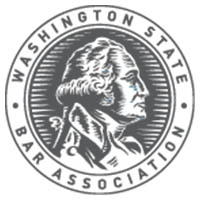
We win with tough defense - (206) 453-1800
What are your Rights when Interacting with the Police
What to Do If You’re Contacted By the Police
Every person in the United States has Constitutional Rights to remain silent and to be provided an attorney when questioned by the police. You also have the right to be free from unreasonable search and seizure. Our founding father’s realized that the government has vast power and that these rights, under the Fourth, Fifth and Sixth Amendment were necessary to protect ordinary citizens. Exercising these rights may be the only thing that prevents you from wrongful conviction.
There are lots of reasons to exercise your rights. Officers are trained to get you to say and do things they can use against you. It is legal for officers to lie or trick you. It’s scary to be encountered by the police. People often say things they think are helpful that later get used against them. If you don’t say anything, there can be no misunderstandings. If you consent to a search you give up your right to fight the lawfulness of it. Refusing to consent to a search means law enforcement has to prove they had probable cause.
If You are Contacted for Questioning
Police will contact “person’s of interest” in a variety of different ways. They may be overly aggressive to try to scare you or they might pretend to be your best friend. Either way you should follow the rules below. You have no way of knowing what they suspect or what information they have. The police can fight dirty, you can’t.
- You have the right to remain silent. You don’t have to answer any questions. What you say can give the police the information they need to arrest you. You should be clear that you are “exercising your right to remain silent.”
- Police may detain you or “pat-down” your clothing for weapons. Do not resist. Do make it clear you are “not consenting” to a search.
- Ask if you free to leave. If the answer is “yes” then leave. If “no” then clearly state “I demand an attorney,” then say nothing more.
- Never resist, argue or fight with the officer. This could lead to reasons to arrest you or unnecessary criminal charges.
- Following the steps might not prevent you from being arrested. Demanding and attorney and remaining silent could be the difference between conviction and freedom.
- Remember, the time to argue your case is later.
If You are Stopped in Your Car
Most DUI cases start from a traffic stop for something simple, like speeding or failing to use a turn signal. Following these rules will give you the best chance of fighting your case later.
- Keep you license, registration and insurance current, and keep them somewhere where they are easy to get to. In Washington, if you are stopped while driving, you must show your driver’s license, registration and insurance. You do not need to answer any further questions. Tell the officer you are “not answering any questions without an attorney present.” Again, this may not save you from being arrested, but it could easily be the difference between a DUI conviction and a dismissal.
- Do NOT consent to the search of your vehicle. Although, police may threaten to arrest you if you refuse. Refusing to consent to search is not grounds for arrest. Do not try to interfere if the police ignore your request and search the vehicle anyway. This is an issue for your lawyer to address in court later. Not for you to argue with on the side of the road.
- Never agree to take the roadside field sobriety tests. There is almost no way to “pass” the test. The tests are not designed see if you are okay to drive. They are used for the sole purpose of gathering evidence against a person. There is no benefit to taking these.
- Never agree to take the portable breath test. Washington law does not allow this test to be used at trial. The PBT can, however, be used as evidence to support arrest. Like the roadside gymnastics, a PBT can only hurt you.
- If you are asked to sign a ticket, do so. This is not an admission of guilt. The time to fight is later, in court.
- If you are arrested, and asked to take a breath or a blood test, you should demand an attorney. Do NOT make any decision about whether or not to submit to a test until you have consulted with an attorney. The police must provide you with an attorney if you demand one. Be aware that the police can get a warrant to draw your blood. You should not resist, if they do. As always, the time to fight any battles over the legality of police actions is in court.
In Your Home
The home is a sacred place. You have a much higher level of privacy in your home than you do in your car or on the street.
- If police knock on your door you do NOT have to let them in, unless they have a search warrant signed by a judge. Ask to see the warrant and do NOT consent to a search of your home.
- There are some emergency situations when the police can enter your home without your permission or a warrant. As in all the cases above, do not physically obstruct the officers in any way. The time to fight for your rights later, in a courtroom.
Important Reminders
- Do not interfere with or obstruct police. Even if you are completely innocent of the suspected charges, you can still be arrested and convicted for this.
- Do NOT consent to the search of your person, car or vehicle.
- Always demand an attorney. (If arrested for DUI, do not make any decision until you have talked to an attorney.)
- Remain silent, except to give your required information at a traffic stop, demand an attorney or give verbal notice that you are not consenting to a search.
- If you are suspected of, arrested for, or charged with a crime, immediately contact an attorney. Our office provides free consultations and will explain to you your rights and options.





